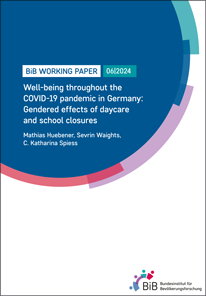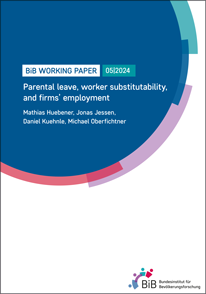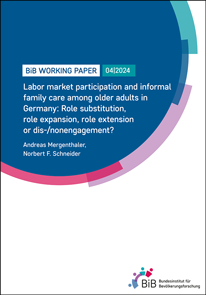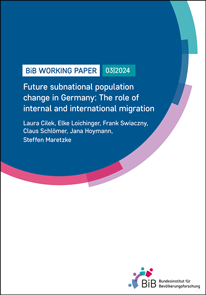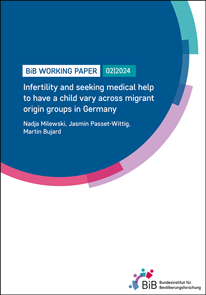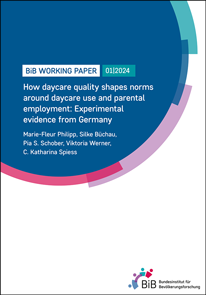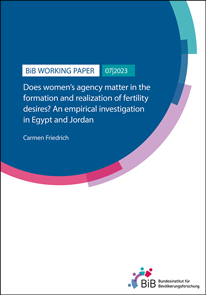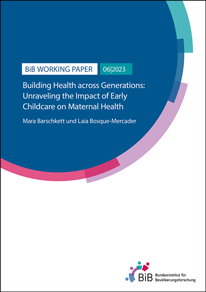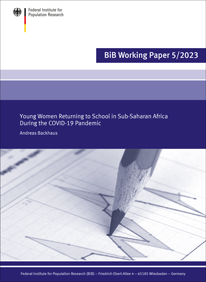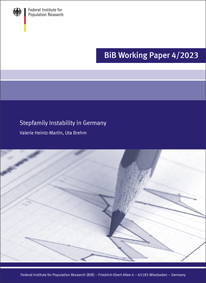BiB.Working Paper
BiB.Working Paper make results and findings available to the scientific public as soon as possible. The series contains articles from the Federal Institute for Population Research (BiB) and papers which have been issued in cooperation with other research institutes as well as external researchers.
The series is subject to a limited internal review process. Thus, the contents do not necessarily represent the position of the BiB, but rather the opinions of the authors. The working papers are written in English or German and are published only electronically at irregular intervals.
Published by: Federal Institute for Population Research (BiB)
Editor depending on topic: Prof. Dr. Martin Bujard, Dr. Sebastian Klüsener, Prof. Dr. Katharina Spieß
ISSN: 2196-9574
Latest Issues
Search results 11 to 20 from a total of 60
Mergenthaler, Andreas; Schneider, Norbert F.
This article examines the diversity of transitions between employment and family care among older adults in Germany using data from the “Transitions and Old Age Potential” (TOP) study. A typology based on role theory and disengagement approach is developed, categorizing transitions into four types main types of transitions—role substitution, role expansion, role extension, and dis-/nonengagement. Further analyses reveal various patterns and influences on these role transitions, including time commitment, labor market inequalities and personal preferences. The findings provide new insights into role transitions in later adulthood and their determinants in aging populations. more: Labor market participation and informal family care among older adults in Germany: Role substitution, role expansion, role extension or dis-/nonengagement? …
Heintz-Martin, Valerie; Brehm, Uta
Separations exert a detrimental impact on different areas of life in both adults and children. Having already experienced family instability, stepfamily members are at risk of experiencing even multiple family separations across the life course. To better understand stepfamily (in)stability in Europe, we study stability risks and facilitators between stepfamilies in Germany. more: Stepfamily Instability in Germany …

